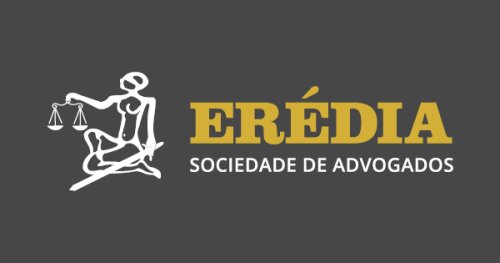Best Education Law Lawyers in Santo Andre
Share your needs with us, get contacted by law firms.
Free. Takes 2 min.
List of the best lawyers in Santo Andre, Brazil
About Education Law in Santo Andre, Brazil
Education Law in Santo Andre, Brazil refers to the body of rules, principles, and regulations that govern the provision, management, and quality of education in the city. It stems from national legislation, mainly the Federal Constitution, the Law of Guidelines and Bases of National Education (Lei de Diretrizes e Bases da Educação - LDB), and is implemented at the municipal level. Local regulations further specify the operation of public and private educational institutions, teacher qualifications, students’ rights, and the broader responsibilities of educational authorities in Santo Andre. The main goal is to ensure access to quality education, protect students and teachers, and foster an environment of legal and educational compliance.
Why You May Need a Lawyer
Many people in Santo Andre come across complex legal issues in the educational field which may require professional assistance. Common situations include:
- Disputes regarding school admissions or enrollment procedures
- Allegations of discrimination, bullying, or unfair treatment in schools
- Issues concerning special educational needs and disability accommodations
- Teacher or staff employment disputes and disciplinary actions
- Problems with school fees, contracts at private schools, or improper charges
- Challenging expulsions, suspensions, or other disciplinary measures
- Seeking judicial intervention when access to education is denied
- Concerns over curriculum content, religious freedoms, or parental rights
- Legal requirements for home schooling or alternative education methods
A specialized Education Law attorney can guide individuals and families through these and other challenges, ensuring their rights are upheld and that they receive fair treatment in educational settings.
Local Laws Overview
Education in Santo Andre is mainly governed by national laws, but municipal rules refine how these laws are put into practice locally. The main aspects include:
- Universal Access: The Constitution and LDB require children and adolescents to have guaranteed access to quality education, with public education being free and compulsory from ages 4 to 17.
- Inclusion Policies: Local regulations mandate that schools must accommodate students with disabilities or special needs, providing necessary support and resources.
- Teacher Regulations: Employment, hiring, and performance of educators are subject to municipal standards, including competitive examinations for public teachers.
- School Infrastructure: The City Hall of Santo Andre monitors safety, accessibility, and adequacy of school facilities.
- Parental and Student Rights: Rules ensure that both parents and students are informed of their legal rights, participate in the school’s administrative councils, and are included in important decisions.
- Private Education Regulation: Private institutions must adhere to local licensing requirements, curriculum standards, and contract transparency with families.
These laws protect the interests of students, parents, and educators, while holding institutions accountable for providing safe and effective learning environments.
Frequently Asked Questions
What basic educational rights do students have in Santo Andre?
All students in Santo Andre have the right to free and quality public education from age 4 to 17, non-discrimination, safe learning environments, and fair treatment according to local and national law.
Can a school refuse enrollment to a student with disabilities?
No. Both national and local laws prohibit discrimination, and schools are required to provide necessary support and resources to students with disabilities.
What should I do if my child is being bullied at school?
Report the incident to the school administration. If the situation does not improve or is not addressed, consider consulting an Education Law attorney for further action and to protect the rights of your child.
Are private schools allowed to charge any fees they want?
Private schools can set tuition and fees, but must clearly disclose all charges and comply with local regulations to prevent abusive or unfair practices. Unlawful or hidden fees can be contested.
Can parents participate in the management of public schools?
Yes. Parental participation is encouraged by law and parents can be members of school councils, which have input on administrative and pedagogical decisions.
What are the requirements for home schooling in Santo Andre?
Home schooling is a contentious issue in Brazil and is subject to strict regulation. Legal advice is strongly recommended for families considering this option, due to the complexities involved.
How are teacher hiring and firing handled in public schools?
Municipal public schools must follow public service regulations, including open competitive exams for hiring and guaranteed due process in all employment actions.
Is religious education allowed in schools?
Religious education is permitted as an optional subject in public schools, but cannot be imposed, ensuring the secular nature of education is protected for all students.
What can I do if my child is unfairly suspended or expelled?
You have the right to be informed of the reason and to appeal through administrative procedures. Legal review is possible if due process is not followed.
Where should I report irregularities in school administration?
Irregularities can be reported to the municipal education office (Secretaria Municipal de Educação de Santo Andre), or to the Public Prosecutor's Office if the issue involves broader legal violations.
Additional Resources
People in Santo Andre seeking more information or assistance on Education Law matters may find the following resources helpful:
- Secretaria Municipal de Educação de Santo Andre - Main local authority responsible for education matters
- Defensoria Pública do Estado de São Paulo - Offers free or low-cost legal advice, especially for lower-income families
- Ministério da Educação (MEC) - Oversees national educational policy and regulations
- Conselho Tutelar de Santo Andre - Protects children’s rights and can intervene in educational disputes or rights violations
- Public Prosecutor’s Office (Ministério Público) - Receives reports of serious legal violations in education
- Local parent associations and educational non-profits - Offer support and advocacy services
Next Steps
If you find yourself facing an educational legal issue in Santo Andre, consider the following steps:
- Gather documentation related to your issue, such as correspondence, official notices, and school records.
- Contact the school or educational authority to try to resolve the problem directly, if appropriate.
- If the issue remains unresolved, contact the Secretaria Municipal de Educação de Santo Andre or the Conselho Tutelar for guidance.
- Seek legal advice from an attorney who specializes in Education Law. The Defensoria Pública may assist with free legal counsel if eligible.
- Prepare for any administrative or legal proceedings by reviewing your rights and the relevant laws highlighted above.
Education Law in Santo Andre, Brazil, is designed to protect and empower students, families, and teachers. Knowing your rights and how to assert them is the first step toward a fair and just educational experience.
Lawzana helps you find the best lawyers and law firms in Santo Andre through a curated and pre-screened list of qualified legal professionals. Our platform offers rankings and detailed profiles of attorneys and law firms, allowing you to compare based on practice areas, including Education Law, experience, and client feedback.
Each profile includes a description of the firm's areas of practice, client reviews, team members and partners, year of establishment, spoken languages, office locations, contact information, social media presence, and any published articles or resources. Most firms on our platform speak English and are experienced in both local and international legal matters.
Get a quote from top-rated law firms in Santo Andre, Brazil — quickly, securely, and without unnecessary hassle.
Disclaimer:
The information provided on this page is for general informational purposes only and does not constitute legal advice. While we strive to ensure the accuracy and relevance of the content, legal information may change over time, and interpretations of the law can vary. You should always consult with a qualified legal professional for advice specific to your situation.
We disclaim all liability for actions taken or not taken based on the content of this page. If you believe any information is incorrect or outdated, please contact us, and we will review and update it where appropriate.










